Delphi teases 800V inverter for 2022 “high-performance vehicle”Delphi teases 800V inverter for 2022 “high-performance vehicle”
Last week, in coordination with the Frankfurt auto show, Delphi Technologies announced it will be the first major supplier for the auto industry to produce an 800-volt inverter—a component that Delphi underscores is one of the enablers to allow 800-volt charging and effectively halve charging times compared to today’s 400-volt systems.
As Delphi outlines, with 800V systems, automakers have greater freedom, to either opt for smaller, lighter cables and connectors, harvest more power via regenerative braking, or go for ultra-fast charging.
And at least one more automaker is sold on it. Delphi says that it secured a $2.7 billion deal for volume production of the 800-volt inverter over 8 years with “a premier global OEM,” on the product launch of “a high-performance vehicle” in 2022.
Cadillac electric crossover SUV based on GM BEV3 modular platform
That brings up a long list of potential products. Some or all of the upcoming Porsche and Audi vehicles built around the Volkswagen Group’s premium electric (PPE) platform are anticipated to be 800-volt, and Hyundai’s Genesis electric luxury cars are expected to be built around an 800-volt architecture. GM’s BEV3 platform will likely launch in a Cadillac, with premium EVs from Mercedes-Benz expected as well.
In electric cars, the inverter is the component that changes the direct current (DC) from the battery to alternating current (AC) to be used by the motor system. Although the battery pack is by far the most expensive component in electric cars, the inverter is one of the runners-up.
Delphi Technologies 800V inverter
Delphi’s component employs silicon carbide MOSFET semiconductors from the specialist company Cree. Delphi says its Viper power switch together with that helped create a product that is 40 percent lighter and 30 percent more compact than comparable inverters.
Porsche led one of the turning points toward 800V technology. It opted, in 2015, to undertake the development of an inverter, power systems, wiring harnesses, and various accessories all in-house because they didn’t exist then from so-called Tier 1 suppliers.
Outside of the very limited Aston Martin Rapide E and fully electric racing—in Formula E, most notably—800V tech has seen little implementation so far.
That’s clearly now due to change. Even electric-truck hopeful Rivian told Green Car Reports last year that it has conceived its 400V platform for a future 800V upgrade, likely around 2022.
Based on announcements such as this from Delphi, it’s safe to say that the change to 800V is happening—from the top of the market down, because it’s more expensive—and possibly a lot faster than previously anticipated.
View original article at: “https://www.greencarreports.com//news/1125059_delphi-teases-800v-inverter-for-2022-high-performance-vehicle”
Related posts


Electric SUVs: Top 6 Models for Family Trips











